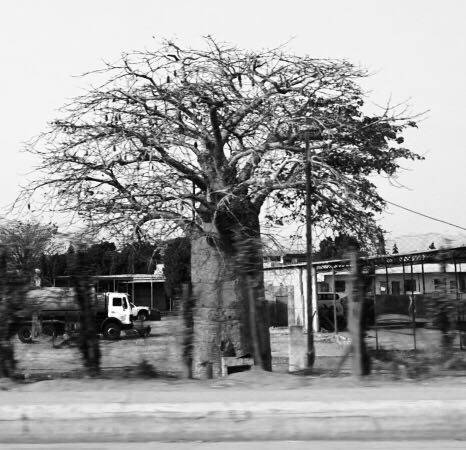The course deals with sustainable development with a focus on countries in the global South and especially cities and countries in sub-Saharan Africa, their current situation and future development. Current social and technological developments are understood in the light of historical and geographical factors, including colonial and post-colonial structures. Infrastructure, technology and socio-ecological factors are discussed and the course develops an understanding of their connection with poverty reduction, natural resources, economy, business opportunities and social justice.
AL2195 Sustainable Development in Developing Countries 7.5 credits
This course will be discontinued.
Last planned examination: Spring 2026
Decision to discontinue this course:
The course will be discontinued at the end of Spring 2024 according to ABE- faculty board decision: A-2024-0548.
Decision date: 2024-04-11
The course was given for the last time HT 2022. The last opportunity for examination in the course is given VT 2026.

Note that this course will not be given any longer. It is being replaced by the new course AL2121 Global Development and Political Ecology with the same course leader and similar approach, content, and structure.
*
The course develops a critical framework for understanding uneven development including social justice and environmental change with a special focus on the rapid urbanisation of the global South. The course is fundamental for further studies in critical environmental research, sustainable development, and development studies.
In the course we develop a theoretical framework based on three key concepts: uneven development, "thinking from the South," and political ecology. Political ecology emphasises how development requires social and environmental transformation that shape rural and urban landscapes and creates winners and loosers. In parallel, we draw upon postcolonial thought to challenge from where development, sustainability and urbanization can be understood. This expands the places, experiences and researchers that can inform development theory and practice.
Pedagogically, the course is based on creating a community of inquiry between students and the teacher. Lectures are followed by group work as well as seminars and individual consultation hours. This creates a learning environment where it is safe to both ask and try to answer difficult questions. Group work means to do a case study analysis of a city in the South (Kampala, Lagos, Luanda, Bangalore, etc.) or a commodity production chain (palm oil, soy beans, solar energy, wind energy, etc.), and receive training in case study analysis (desktop research), group presentation, and applying theory to understand complex and conflictridden realities. You will also train essay writing with feedback from the teacher and peers to support your growth as a writer and thinker.
Information per course offering
Course offerings are missing for current or upcoming semesters.
Course syllabus as PDF
Please note: all information from the Course syllabus is available on this page in an accessible format.
Course syllabus AL2195 (Autumn 2022–)Content and learning outcomes
Course contents
Intended learning outcomes
The overall goal of the course is to provide an in-depth insight into how the world's historically and geographically unequal development affects opportunities for a more fair and environmentally sustainable development. After completing the course, the student should be able to:
- Provide a historical and geographical background to the concept of uneven development and its relation to sustainable development.
- Describe the emergence of regional differences (social, economic and ecological) with a focus on countries in the global South.
- In a written essay and based on scientific literature, analyze and discuss how infrastructure and technology affect various aspects of sustainable development in low- and middle-income countries.
- Discuss scientific methods for analysis of social, ecological and technical aspects for sustainable development with a focus on countries in the global South.
- To develop in groups a critical case study on the conditions for uneven development and sustainable development.
- Search for scientific literature within the course's subject area to use as reference material in an essay.
- Give an oral presentation in a group of a case study.
Literature and preparations
Specific prerequisites
TSUTM: -
Others: Open for programme students at KTH with at least 120 ECTS or a Bachelor degree for other students
Courses from Upper Secondary School corresponding to the courses Eng B/6 according to the Swedish upper secondary school system
Literature
Examination and completion
Grading scale
Examination
- UPP1 - Short critical reflection on self-selected articles, 1.5 credits, grading scale: A, B, C, D, E, FX, F
- INL2 - Peer-review of UPP1, 0.5 credits, grading scale: A, B, C, D, E, FX, F
- PRO4 - Group project with presentation, 2.5 credits, grading scale: P, F
- UPP2 - Essay, 3.0 credits, grading scale: A, B, C, D, E, FX, F
Based on recommendation from KTH’s coordinator for disabilities, the examiner will decide how to adapt an examination for students with documented disability.
The examiner may apply another examination format when re-examining individual students.
If the course is discontinued, students may request to be examined during the following two academic years.
Other requirements for final grade
Graded A-F
The final grade is calculated together with the grade in each component that is weighted in relation to the points that the components contribute.
All examined parts should be passed in order to get a final grade
Examiner
Ethical approach
- All members of a group are responsible for the group's work.
- In any assessment, every student shall honestly disclose any help received and sources used.
- In an oral assessment, every student shall be able to present and answer questions about the entire assignment and solution.